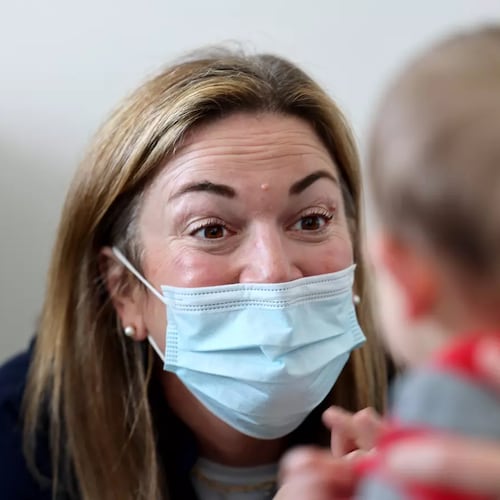Whether you’re a fan of remote school instruction or not, a recently published study has found that it can be an advantage for parents of children with autism spectrum disorder.
Rutgers University researchers have found telehealth training is an effective approach for educating parents about early behavioral intervention for their children in lieu of in-person teaching as the coronavirus pandemic continues.
“Since parents play an important role in the treatment of their children’s autism symptoms, developing effective, efficient, socially acceptable and accessible training so they can implement these interventions is critically important,” lead author Wayne Fisher, director of the Rutgers Center for Autism Research, Education and Services at the Rutgers Brain Health Institute said in a press release. “However, many parents do not have access to this complex training due to geographic, economic and time barriers — or more recently the pandemic, which has made in-person training difficult.”
The study, which was published in The Journal of Applied Behavioral Analysis, involved 25 adults who had a child diagnosed with an autism spectrum disorder and had no experience in applied behavior analysis (ABA) intervention. Recruited by Fisher and his colleagues, 13 adults were assigned to the treatment group while 12 were placed in a control group that didn’t receive virtual training. The control group, however, continued with other behavioral programs they had been using.
While participating, parents were evaluated for their ability to implement the behavioral procedures they learned virtually and through specialist-aided scripted role-play. Prior to and at the conclusion of virtual learning, expert observers viewed footage of how parents in the treatment and control groups responded to researchers who used a script to mimic behaviors typically shown in children who have autism. They included appropriate actions such as spurring conversation and inappropriate ones such as aggression.
Results showed that parents in the treatment group displayed notable improvements compared to the group that didn’t receive virtual instruction. Additionally, the study found parents' 6.6 of 7 rating of the telehealth instruction exhibited its ease of use, effectiveness and comprehensiveness.
“The findings show that parents can be virtually trained in these complex procedures and that the methods are ones that they find easy to use,” Fisher said in a statement. “You want these treatments to not only work in the clinic with the trained technicians but also in a child’s daily life, helping parents to manage behavior and helping the child communicate better and to do activities like go out to dinner.”
The Centers for Disease Control and Prevention states autism spectrum disorder is “a developmental disability that can cause significant social, communication and behavioral challenges.” Research points to why it’s important for parents to discuss with their child’s doctor if they suspect a developmental disorder. A child’s development can improve through early intervention treatment services, which can help children from birth to 3-years-old learn vital skills.
About the Author
The Latest
Featured


